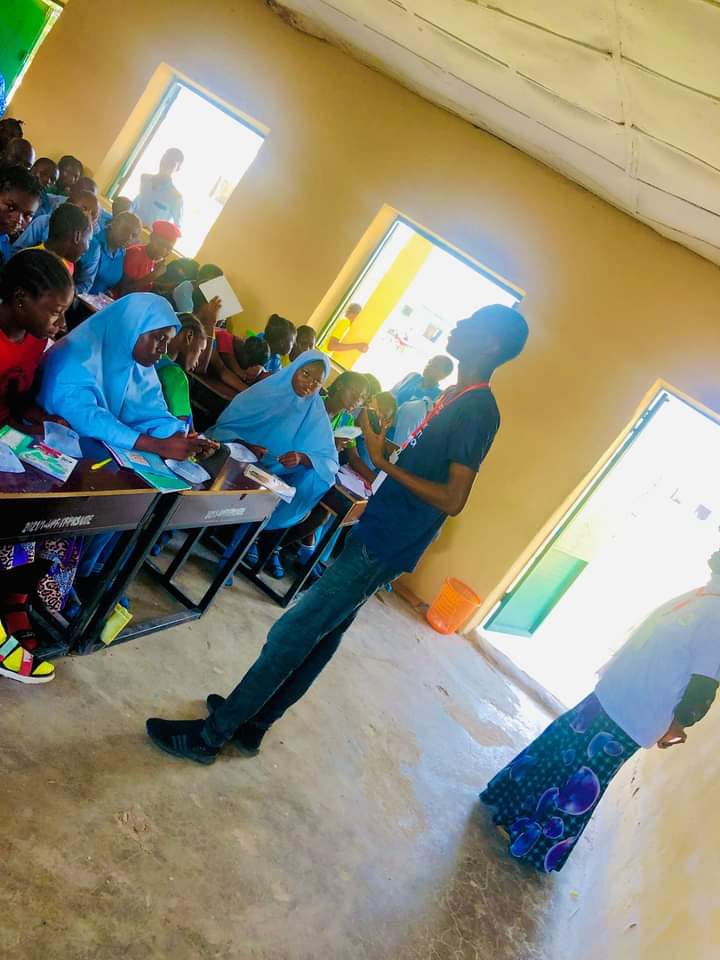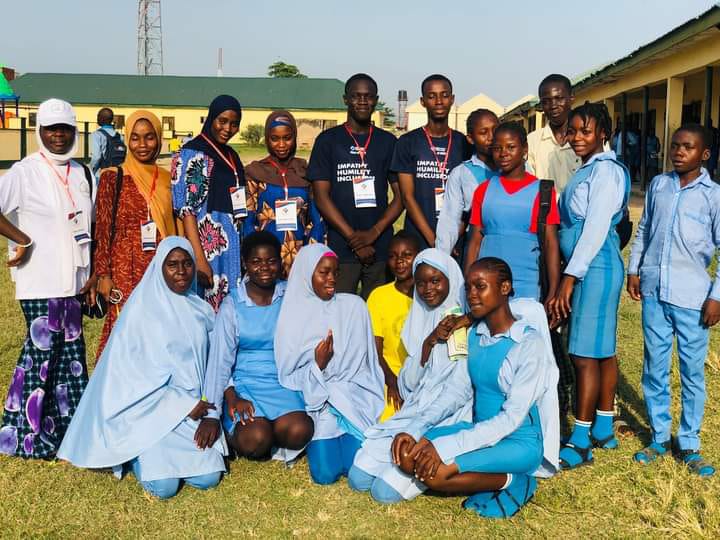Growing up in Jalingo, in the Nigerian state of Taraba, Abdulmajid Dabo lost his grandfather to tuberculosis due to poor knowledge about the disease. This sudden demise took a heavy toll on young Dabo, prompting him to take up studies in medical laboratory science.
“Even though we lost our grandfather to tuberculosis, I felt those are types of diseases that can easily be treated. But because of the limited information that our people have, he lived through the disease until he was on the verge of dying, and that’s when attention was given to him, which was too late. This experience left a mark in my heart,” Dabo said.
As a medical student at Taraba State University, Dabo hoped to create lofty strides in his community, although he was unsure how. This thought gnawed at him each day until the coronavirus pandemic struck. As the pandemic wore on, Dabo spent his leisure time reading books and participating in virtual webinars. Here, he would encounter his peers in foreign countries who were creating health campaigns within their respective communities.
After a stint of volunteering for health-related campaigns in Jalingo, Dabo organized a few of his course mates one morning in November 2021 and informed them of his passion for health education. Thus began the Health Enthusiast Initiative, a nonprofit that seeks to create awareness about deadly health diseases and effective treatments against these diseases.
Available community surveys estimate that the prevalence of mental health disorders among the Nigerian population ranges from 12% to 26%. That is to say, at least 20 million Nigerians are at risk of developing a mental health disorder during their lifetime.
After two abortive attempts, former President Muhammadu Buhari signed the mental health bill into law earlier this year. Still, awareness of mental health remains low among the masses, and related health campaigns are few and far between.
Following the success of his outfit, Dabo launched a project called Mental Health Education under the aegis of the Health Enthusiast Initiative. Drawing on his experience with social anxiety, he aimed to help young people like him cope with the mental anxiety.
The project, which targeted 156 high-school students at Salihu Dogo Secondary School in Jalingo, recruited the expertise of Dabo’s medical colleagues and public-health specialists. Through the outreach, they counselled the students on mental health and ways to battle its disorders.

“While carrying out the training, we understand that most of the students are battling low self-esteem, so we went ahead and shared tips with them that will boost their self-confidence and improve their public speaking skills,” Dabo explained.
Hafsat Abdulwahab, one of the students present at the outreach, had thought of mental health as a euphemism for madness before the training.
“I have now learned that mental health isn’t just about madness but something that has to do with our overall well-being. It’s important for our physical health,” Abdulwahab told Prime Progress.
Similarly, Emmanuel Musa, another student, disclosed, “The sessions opened my eyes. I used to associate mental health with weakness, but now I understand that it’s a crucial part of our well-being and I have learned about coping mechanisms and how important it is to seek help when one is facing mental health issues.”
Through group discussions that emphasized personal experiences, Dabo’s initiative helped to debunk the misconception about mental health for such students as Abdulwahab and Musa, who have gone on to impart the knowledge to their peers.
“The training helped me understand that It’s about taking care of ourselves emotionally and mentally. The initiative taught us that it’s okay not to be okay and that seeking help is a sign of strength,” Abdulwahab added.
Dabo’s advocacy sometimes faces resistance from certain schools, which consider mental health such an unethical topic that they’d refuse to allow their students to participate in these health outreaches.
“It was difficult explaining to the students what mental health illness is because of the already existing misconception,” Dabo admitted.
Still, Dabo’s simple dream keeps flourishing amidst all odds. “We hope to create more awareness about health issues in our communities and bring about changes in policies and advocate for better healthcare delivery in Taraba State,” he said
Abdulmajid Dabo, from Jalingo in Nigeria, lost his grandfather to tuberculosis due to a lack of awareness about the disease. This motivated him to study medical laboratory science at Taraba State University, aiming to improve health education in his community. During the COVID-19 pandemic, Dabo was inspired by peers globally who were involved in health campaigns. This led him to establish the Health Enthusiast Initiative, a nonprofit focused on educating people about deadly diseases and their treatments.
One notable project under this initiative is the Mental Health Education program, launched to address the significant mental health issues in Nigeria, where 12% to 26% of the population is affected. The project targeted 156 high-school students at Salihu Dogo Secondary School in Jalingo, providing counseling and tips to boost their self-esteem and public speaking skills. The students learned to view mental health beyond common misconceptions, recognizing its importance to overall well-being.
Despite some resistance from schools viewing mental health as an inappropriate topic, Dabo continues his advocacy with the goal of raising health awareness and influencing policy changes in Taraba State.






